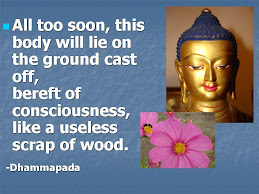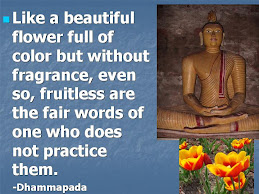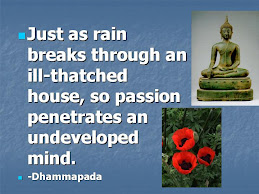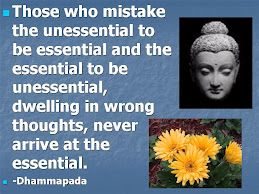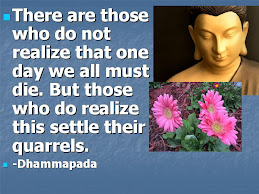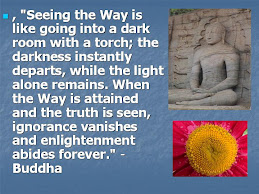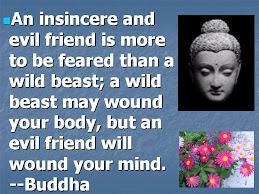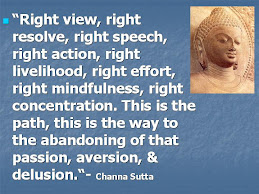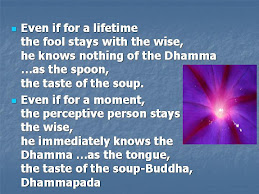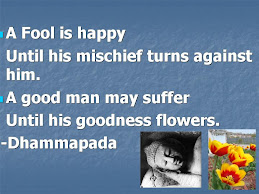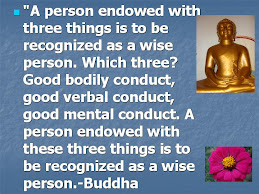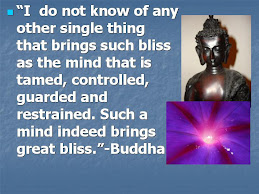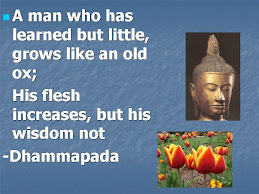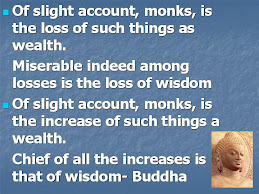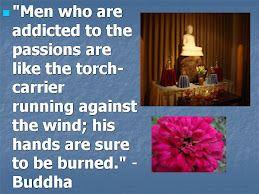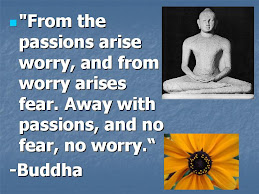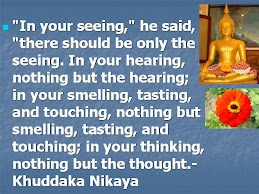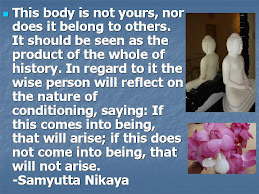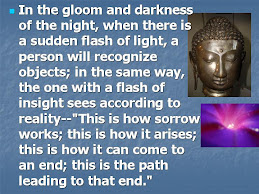
1. Seeing a form via the eye, one explores a form that can act as the basis for pleasant feeling, one explores a form that can act as the basis for unpleasant feeling, one explores a form that can act as the basis for equanimity.
2. Hearing a sound via the ear one explores a sound that can act as the basis for pleasant feeling, one explores a sound that can act as the basis for unpleasant feeling, one explores a sound that can act as the basis for equanimity.
3. Smelling an aroma via the nose, one explores a aroma that can act as the basis for pleasant feeling, one explores a aroma that can act as the basis for unpleasant feeling, one explores a aroma that can act as the basis for equanimity.
4. Tasting a flavor via the tongue, one explores a flavor that can act as the basis for pleasant feeling, one explores a flavor that can act as the basis for unpleasant feeling, one explores a flavor that can act as the basis for equanimity.
5. Feeling a tactile sensation via the body, one explores a sensation that can act as the basis for pleasant feeling, one explores a sensation that can act as the basis for unpleasant feeling, one explores a sensation that can act as the basis for equanimity.
6. Cognizing an idea via the intellect, one explores an idea that can act as the basis for pleasant feeling, one explores an idea that can act as the basis for unpleasant feeling, one explores an idea that can act as the basis for equanimity.
(The idea taken from the sutta below)
Tittha Sutta: Sectarians
Tittha Sutta: Sectarians
translated from the Pali by
Thanissaro Bhikkhu
http://www.accesstoinsight.org/tipitaka/an/an03/an03.061.than.html
http://www.accesstoinsight.org/tipitaka/an/an03/an03.061.than.html



































